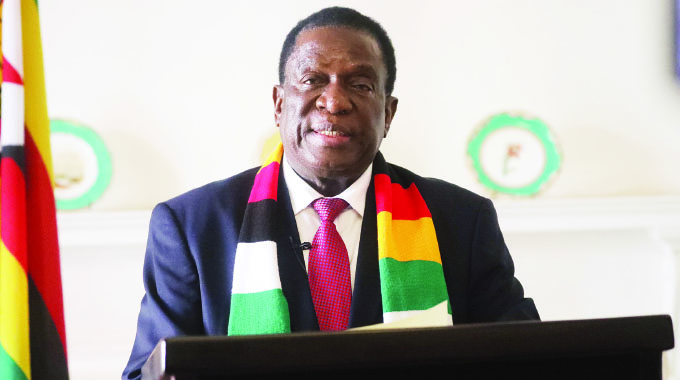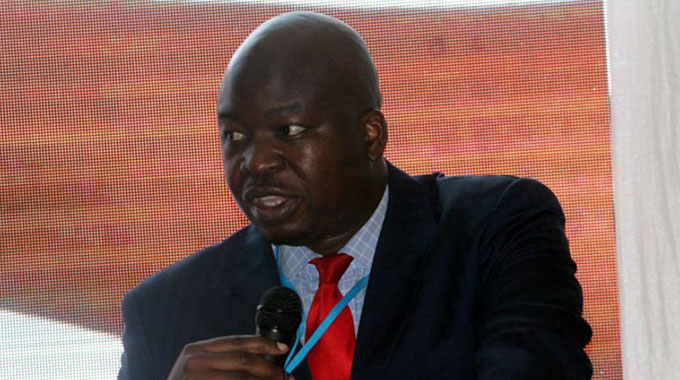White ex-farmers to get compensation for land development

Herald Reporter
WITH allocations in next year’s budget and the Government and white former commercial farmers ready to work together to raise funds through long-term bonds, the farmers will start receiving compensation for improvements made on their properties from early next year.
The right to compensation for improvements is set in the Constitution, specifically Section 72(3), which “provides for the payment of compensation for improvements only on compulsorily acquired agricultural land”.
While the land itself is excluded from the compensation, the value is not only difficult to quantify but is on any productive farm dwarfed by the improvements and their values are far easier to set.
The Second Republic took the Constitutional requirements seriously and entered into detailed negotiations with the former commercial farmers and the two parties were able to come to an agreement acceptable to both.
In 2020, President Mnangagwa presided over the signing of the US$3,5 billion Global Compensation Deed which entails paying the former farmers for improvements they made on the land, as he shifted focus to production and productivity in pursuance of food self-sufficiency and security.
Apart from concluding the historic land reform programme, this was a demonstration of President Mnangagwa’s commitment to constitutional obligations and respect for the rule of law, at the same time reflecting the Second Republic’s political commitment to the successful conclusion of the land redistribution process in a dignified manner that restored the integrity and dignity of all the people of Zimbabwe.
Part of the agreement entailed that the Joint Resources Mobilisation Committee, comprising representatives from both Government and the farmers, would engage international lenders.
Recently, at the inaugural structured dialogue platform on Zimbabwe’s Arrears Clearance and Debt Resolution Process in Harare, President Mnangagwa, in a speech read on his behalf by Finance and Economic Development Minister Professor Mthuli Ncube, revealed that the affected farmers will start receiving compensation.
“As part of our broad strategy of re-engagement with the international community, we are already implementing economic and governance reforms, which I believe are necessary and critical to the process we have embarked on.
“I am committed to compensating former farm farmers under the Global Compensation Deed. I am happy to announce that the former farm owners recently accepted my Government’s offer to settle the Global Compensation Deed amount. This compensation process will commence in early 2023,” President Mnangagwa said.
Under the agreement, the Government and the former farmers would establish a joint mobilisation committee to work with the Finance and Economic Development Ministry for Government to raise funds for compensation for improvements by issuing long dated bonds with a tenure of 30 years.
If the committee failed to raise sufficient funds in time, the payment periods for the down payment and the balance of the global compensation figure would be extended by written mutual consent of the farmers and the Government.
However, Prof Ncube is not looking to external funders only but has this year set aside some money that will go towards compensating the farmers, using his budget to show the Government’s intentions and to demonstrate its commitment to pay.
Economist Mr Eddie Cross told The Herald yesterday that by paying farmers, Zimbabwe is demonstrating its commitment to meeting international obligations and respect the rule of law.
“It is very important that Government demonstrates its commitment to fulfilling its promises and I am glad that the compensation of white farmers is included in this year’s budget.
“This is a signal to the world that Zimbabwe is ready to fulfil its obligations and I am also glad that the international community has welcomed this position taken by Zimbabwe, especially the lenders,” said Mr Cross.
The President, the Constitution and the agreement with the farmers made it clear that compensation is for infrastructural improvements that the farmers did on farms and not the land, which was at the heart of the country’s liberation struggle of the 1960s and 1970s.
This major difference was built on the fact that the land was originally grabbed in armed conquest or fraudulent deals backed by force, regardless of what subsequent holders of the title deeds may have paid although original deed holders often paid almost nothing or won the land through military service.
But the improvements were investments into productivity and that was obviously different and those needed to be paid for.
With hands tied by constitutional requirements contained in the Lancaster House Constitution, the Government adopted a willing-buyer-willing-seller approach after independence in 1980, but because few wished to sell, success was limited.
The legality of the major land reform thrust of the early 2000s was confirmed in 2013 when an overwhelming majority of Zimbabweans approved, in a referendum, the present Constitution which incorporates the irreversibility of the land reform programme but makes it clear that the holders of the appropriated land were entitled to full compensation for their improvements.








Comments